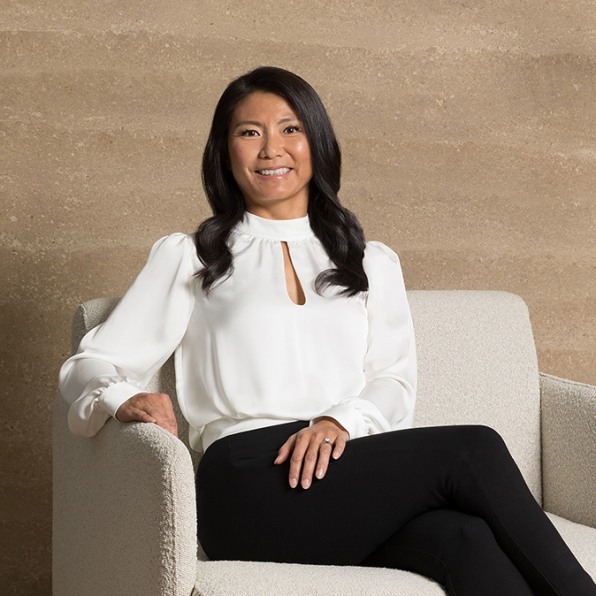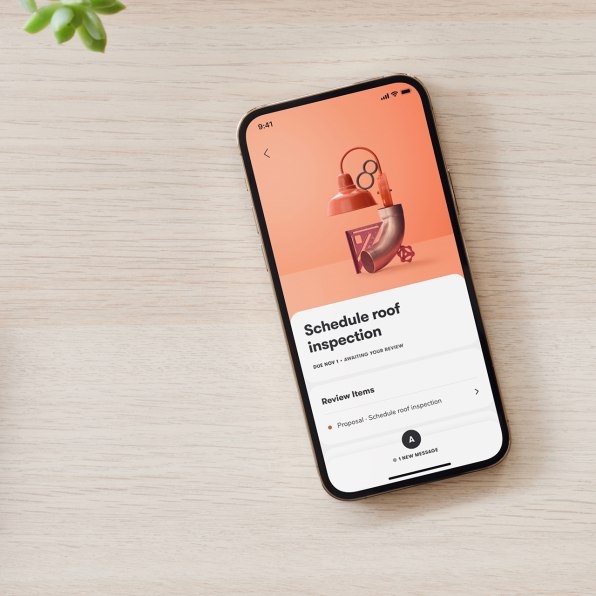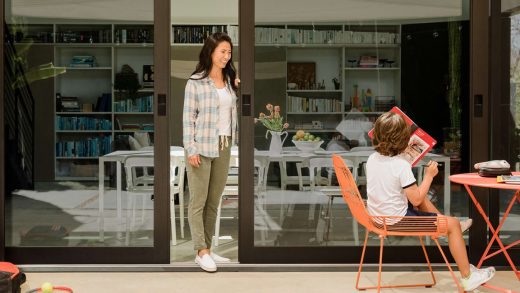This Google vet and Panasonic are using AI—and humans—to help busy moms
In many ways, Yoky Matsuoka is precisely the sort of person you’d expect to start a tech company. She cofounded Google X (now known simply as X); spent two tours of duty at Nest (both as a startup and arm of Alphabet); developed health products at Apple, and created and led Carnegie Mellon’s Neurobotics Laboratory. So when she announced last June that she’d been working for a year and a half on a startup called Yo Labs, the biggest surprise was that she was doing it inside Panasonic—a huge, familiar brand, but not the most obvious landing spot for someone with Matsuoka’s Silicon Valley credentials.
Now Matsuoka has revealed what Yo Labs has been working on, and once again, it’s something you wouldn’t have predicted if you’d tried to guess from her background. Yohana is a personal assistant service designed to help busy parents—moms in particular—streamline necessary everyday tasks to free up time for the most meaningful aspects of life.

Yohana is a service and an app—as well as Yo Labs’s new corporate brand—and it certainly leverages artificial intelligence and other technologies that Matsuoka has deep experience with. But don’t let the term assistant lead you in the wrong direction: It’s not a rival to Siri or Alexa or any other service whose assistance is provided by a synthetic personality. Instead, it offers on-demand assistance from actual human helpers for everything from organizing a birthday party to planning a kitchen renovation.
“We’re going to be a wellness company focused on helping families find more balance, prioritize well-being, and be more present for each other,” Matsuoka explains. “One of the things that I found by using this as a field trial is that I have a little more of that mental space to be with my kids and enjoy those moments when I used to always be like, ‘I just need to do one more email!’ Moments that, little by little, I’m able to actually buy back. And it’s been just absolutely wonderful.”
Starting over
The Yohana story begins when Matsuoka was still in her old Google job, working on Nest products and contemplating her future. “Two years ago within Google, I realized that what I really wanted to do was to make home a place where we can take care of your health from end to end,” she says. That involves everything from technologies that could anticipate when someone is going to become sick to ones that let older people live at home with dignity. She considered trying to follow this vision inside Google before ultimately deciding that it made sense to explore it elsewhere.
Matsuoka spoke with what she calls “the usual suspects” about potential collaborations before settling on an unusual one: Panasonic. Americans are likely to associate the Japanese mega-corporation with consumer-electronics products. In recent years it’s had a relatively low profile in the U.S.; it even stopped selling TVs here in 2016. But Matsuoka says that the more she dove into Panasonic’s history, the more excited she got about partnering with the company.
Founder Konosuke Matsushita started Panasonic—formerly known as Matsushita Electric Industrial Co.—in 1918 to make lamp sockets. After World War II, the company expanded into a dizzying array of industries, including appliances. But at the highest level, Matsuoka says, Matsushita saw this business not as selling washers and dryers but rather as a means of freeing women from time-consuming drudgery so they could devote themselves to more rewarding pursuits, such as reading.
“I thought, Man, this guy gets it,” Matsuoka says. “He’s really trying to use technology in the right way, to make people be able to become who they want to be. That’s me. And I really resonated with that founder.”

Matsuoka and Panasonic agreed to collaborate without a definitive idea of what they’d build together, beyond the fact that it would involve wellness and might tie into Panasonic devices. Then the pandemic hit. Matsuoka, who had four children in the house—plus ailing parents in Japan—felt overwhelmed.
“I had to do everything from home, when all my kids [were] doing Zoom [schooling] from home, screaming ‘Mom, I need help!’” she explains. “I realized that everything was kind of falling apart around me. But then I spoke with other moms, and they were going through the same thing. I wasn’t alone. This problem was something that everybody was already experiencing.”
That epiphany led to the realization that helping people unload some of the distracting challenges of their lives could be a form of wellness. And that notion prompted the creation of Yohana, which has grown to employ more than 100 people. (According to Matsuoka, the “Yo” in the name references “Yo Labs”—a name her colleagues came up with when she was traveling—and “hana” comes from the Japanese word for flower. “There’s something very special about giving and receiving flowers,” she says.)
How it works
The Yohana service is launching first in Seattle, which has a concentration of Matsuoka’s target market of millennial families with a household income of at least $150,000. She says that the convenience of it being in the same time zone as the company’s home base in Palo Alto, California, also came into play, as did the fact that she’s a former Seattle resident: “We picked, selfishly, a city that I and many of our employees can relate to.” The plan is to expand to several other cities within a year.
The human assistants who power Yohana include staffers and contractors located all over the U.S. But Matsuoka has found that it’s important for some of them to be in the Seattle area, since essential knowledge—such as how to keep kids entertained on rainy days—can be highly localized.
For now, people who subscribe to Yohana will get dedicated help from a specific assistant whom they know by name. But Matsuoka says that each of these assistants is backed by a larger team of people with varying areas of expertise, and that the software Yohana has built orchestrates the whole experience to make it efficient and approachable.
“It turns out that human trust with assistance from AI in the background is a great way to go,” she says. We can really understand who the member is, what the member’s family is like, what kind of things they like.”
As for the types of tasks these assistants can tackle, Matsuoka says they fall into three categories. There are the ones that Yohana can handle on its own in two hours to two days, such as online shopping, scheduling appointments, or planning a weekend getaway. There are ones that it won’t do at all: “We don’t buy guns. We don’t buy alcohol.” And then there are tasks that require outside specialists that Yohana can help facilitate, such as a home remodeling project.
For this last type of assistance, the company is assembling its own list of service providers such as contractors, as well as working with existing networks of such companies. Like more conventional service-provider intermediaries like Thumbtack, Yohana will collect a fee from providers for introducing them to customers.
Which brings up how much consumers will pay for a Yohana membership: $150 per month.
Matsuoka acknowledges that she was initially concerned that this price tag would intimidate potential subscribers. But she adds that more business-oriented remote assistant services—Time Etc is one example—often cost much more. And she brings up a common point of price comparison that might be called the Starbucks Test: “Would you give up one Starbucks coffee in a day to have somebody that was sitting on your shoulder that you can delegate tasks to? Almost everybody says yes. So we’re feeling very good about it,” she says.
Panasonic remains a behind-the-scenes financial backer: The company isn’t even mentioned on the Yohana home page. “They have provided all the resources to be able to do this,” Matsuoka says. “However, I built this company from scratch as if it was a VC-funded startup.”
But stay tuned. Matsuoka’s wellness vision is still far broader than offering an assistant service provided via smartphone. And though she isn’t yet spelling out exactly where she wants to take her company, she does say that it involves a variety of types of smart hardware: “In a kitchen, in a bedroom, in a bathroom—we’re in all different rooms, caring for people . . . and everything has the Panasonic brand on it.”
In other words, the day may come when Panasonic’s involvement in Yohana is far more public—and feels utterly logical rather than a little surprising.
Fast Company , Read Full Story
(41)



